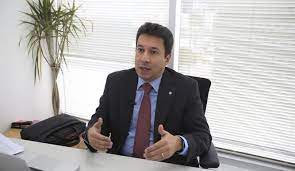Transparency International condemns moves to ease penal code

Elimination of the police record and making accessory penalties more flexible within the Penal Code are part of the initiatives that the National Assembly has launched in the first weeks of Crispiano Adames as president.
Raúl Pineda deputy of the Democratic Revolutionary Party (PRD), proposed eliminating accessory penalties [forbidden to seek public office] for all crimes, except those against the public administration. An initiative that has aroused the rejection of various sectors of civil society, among which is the Panamanian Chapter of Transparency International, represented by the lawyer Carlos Barsallo.
“It is not a priority issue, since it is something that is very well established within the Penal Code. It would be necessary to understand the logic of modifying something that has been proven to work (…) Accessory penalties have logic and it is the judge’s obligation to impose them, it is not optional, ”said Barsallo in Noticias AM .
He asserted that in the end this bill and the other of the elimination of the police record with the aim of reintegration into society must be analyzed by the Executive Body chaired by Laurentino Cortizo who has the last word.
However, it could be the case that the Assembly approves the laws by insistence and for that, it needs the support of two-thirds of the Executive. ” It may also happen that the Executive declares it unenforceable and sends it to the Supreme Court and there it takes its time, ” said the lawyer.
The representative of Transparency International also recalled the amendment to the Public Procurement Law that, at first, disqualified companies involved in corruption cases, but now if they reach an effective collaboration agreement with the authorities they can do business with the government.





